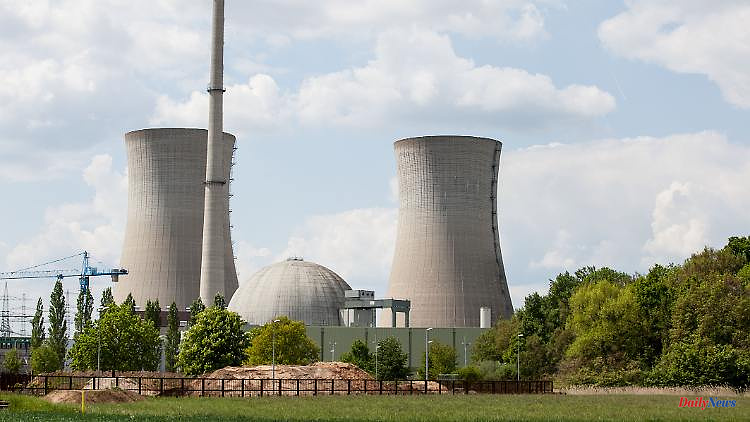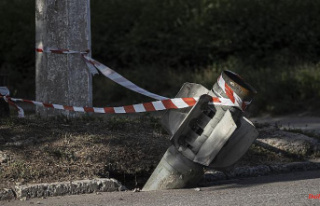Rising energy prices, reduced gas supplies from Russia, fears of empty gas storage facilities in winter: the supply crisis is leading to a new discussion about longer operating times for nuclear power plants. Some Green politicians find it a mere sham debate.
Federal Economics Minister Robert Habeck complained about a lack of objectivity in the debate, which was fueled by the FDP, among others, about extending the service life of the remaining nuclear power plants. "First of all, nuclear power is a high-risk technology and some statements are just too playful for me," said the Green politician to the editorial network Germany. "And I miss objectivity in the discussion." He always said that he was conducting the debate based on the facts. "The fact is: We currently have a gas problem, not an electricity problem. This 'Let's keep it running, then everything will be fine' is neither in relation to the cutbacks in safety standards that we would have to accept, nor is it appropriate to the situation."
The traffic light coalition is increasingly arguing about longer operating times for the three remaining nuclear power plants in Germany. The SPD and the Greens have rejected such advances by the FDP. Union politicians have also been calling for nuclear power plants to be allowed to run beyond the end of the year because of an impending gas shortage. The operators of the three nuclear power plants still in operation have rejected any extensions to their operating lives.
Habeck criticized that it was noticeable "that those who have previously delayed the expansion of power grids and wind power for many years are drumming the loudest for a longer service life for nuclear power plants". He specifically criticized Bavaria's Prime Minister: "By the way, Markus Söder's position on nuclear power would be much more credible if he were also willing to look for a repository for nuclear waste everywhere in Germany - including in Bavaria." The CSU environmental politician Anja Weisgerber told the "Welt": "If every kilowatt hour counts to reduce gas-fired power generation, then it is negligent to shut down three safe nuclear power plants at the end of the year."
The Federal Green Party leader, Ricarda Lang, has once again spoken out clearly against a longer service life for German nuclear power plants. "New studies assume that nuclear power could only replace less than one percent of electricity generation from gas-fired power plants," Lang told the news portal t-online. "It would be like putting the plaster on the wrong place." The costs, risks and benefits of continued operation are "currently out of proportion".
According to Lang, the discussion about a possible lifetime extension for nuclear power plants is a strategy with a view to the coming months. The debate serves to "prepare the blame game for autumn and winter," Lang told t-online. "Then it will be: It's your fault that there isn't enough energy. That may be strategically smart. It's not honest, responsible and in the interests of the citizens."
The FDP politician Wolfgang Kubicki criticized Habeck's argument that there is currently no electricity problem. "If that's true, the question arises as to why the price of electricity on the Leipzig energy exchange will probably skyrocket by 320 percent within this year," wrote the Vice President of the Bundestag in a guest article for "Welt". "And so it seems as if this assertion by Habeck was put forward in order not to have to answer the emotionally difficult question of the continued use of the remaining nuclear power plants for the Green Party."












